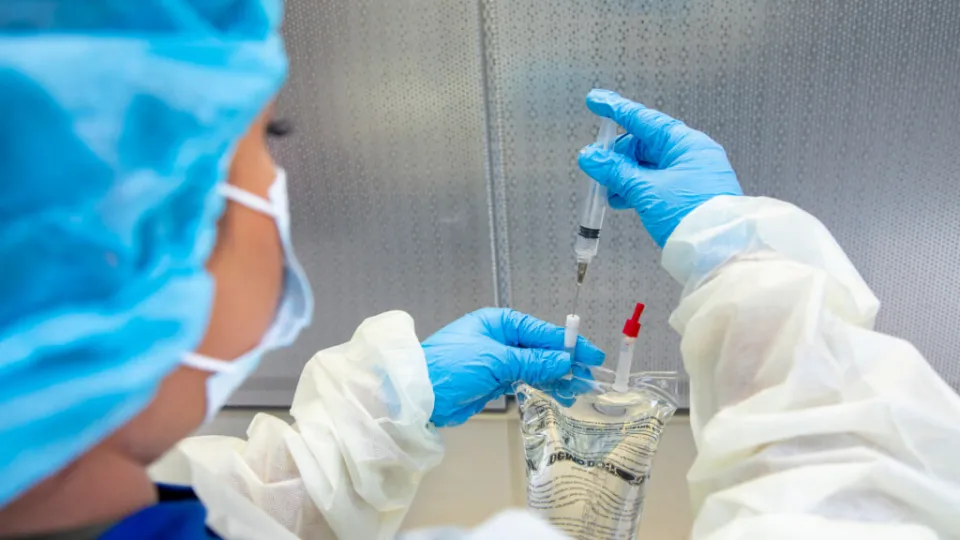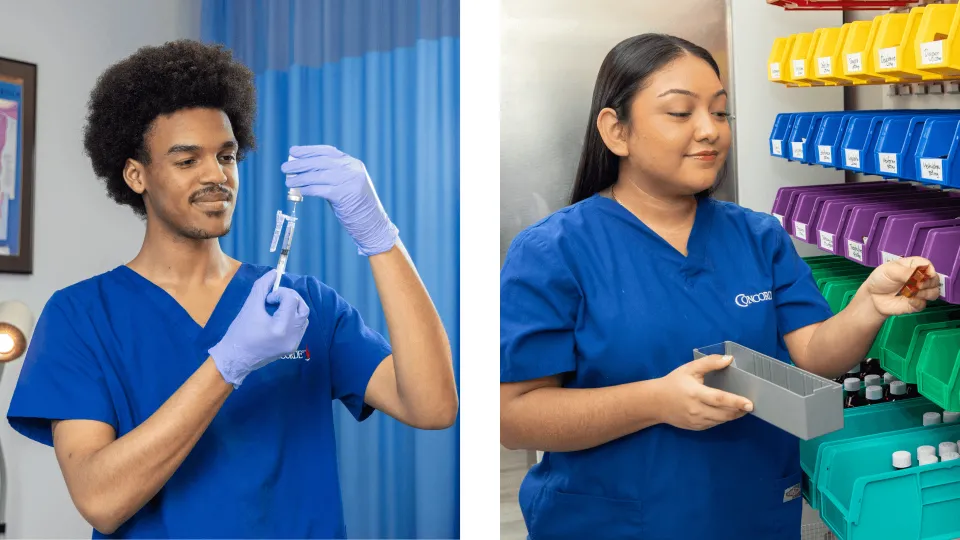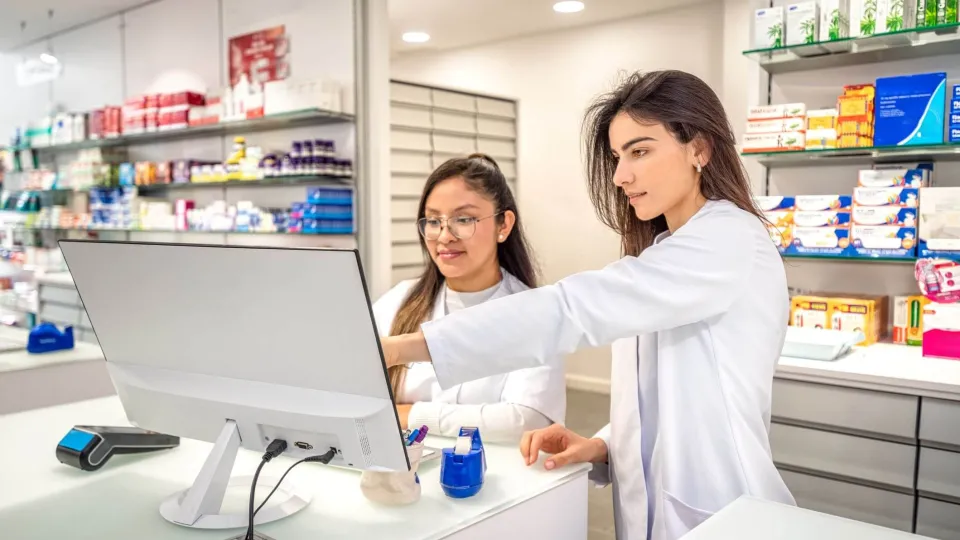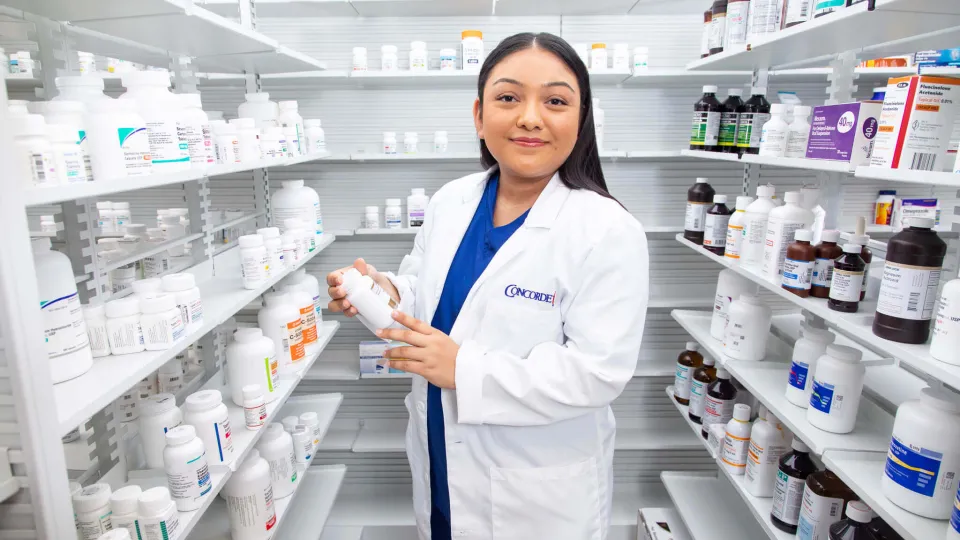
Pharmacy technicians play a key role in the health care industry by assisting pharmacists in managing stock, dispensing medications, and overseeing patient safety. Those with top pharmacy technician skills may have good career prospects in this field, which has lower entry barriers than many other health care roles, especially as job demand is rising.
According to the Bureau of Labor Statistics, pharmacy technician roles are projected to grow by 6% from 2024 to 2034, which is faster than the average for all occupations. This growth equates to approximately 31,500 job openings annually, making it a potentially stable and promising career choice. Aspiring pharmacy technicians need a strong set of clinical and administrative skills to succeed. Here are the top 10 essential skills for pharmacy technicians that can help a successful candidate thrive.
1. Attention to Detail
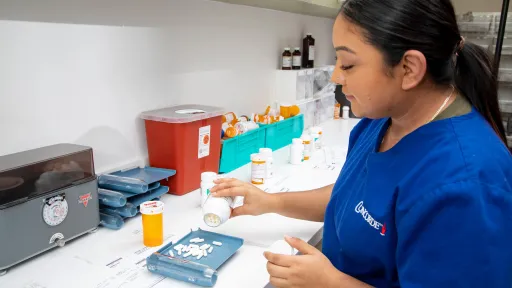
Meticulous attention to detail is crucial in a pharmacy technician's skill set. Technicians must ensure prescriptions are filled correctly, medications are properly labeled, and patient records are maintained without errors. Mistakes in dosage or medication type can lead to serious health risks. Double-checking work, following established protocols, and maintaining accuracy in daily tasks are key to preventing potentially dangerous errors from affecting patients' lives.
2. Mathematical Skills
Accuracy and an understanding of mathematics are essential for aspiring pharmacy technicians. Taking math in high school and college can provide a solid foundation. Tasks such as calculating and adjusting dosages, measuring liquid medications, counting pills, and compounding prescriptions require practical knowledge of ratios and conversions. Proper understanding and execution of these skills are crucial in the management of medication and patient safety.
3. Communication Skills
Effective communication is critical in any health care environment, and a pharmacy is no different. Pharmacy technicians interact with patients, pharmacists, and health care providers daily. They must explain medication instructions clearly, answer customer questions with empathy and understanding, and relay accurate information to pharmacists and other health care professionals. Strong verbal and written communication skills ensure patient safety and that all parties adhere to proper medication guidelines.
4. Organizational Skills
Pharmacy technicians sometimes manage multiple responsibilities simultaneously, such as preparing patient prescriptions, handling insurance claims, and keeping track of medical stock and inventory. Strong organizational skills help technicians maintain efficiency, prevent mistakes, and ensure patients receive their medication promptly in a fast-paced working environment. Staying on top of tasks improves the overall efficiency of the pharmacy and helps everything run smoothly.
5. Computer Skills
Pharmacies rely on digital systems with specialized software to process prescriptions, track inventory, and manage patient records. Pharmacy technicians must be proficient in using computers and pharmacy-related software, as well as entering data accurately and resolving minor system issues. Staying up to date with new technology boosts productivity and reduces the risk of errors. Technicians may need to navigate insurance claims using digital communication tools.
6. Customer Service Skills
Daily interaction with patients, answering questions, processing prescriptions, and addressing queries or concerns are part of being a pharmacy technician. Patience and empathy can help when dealing with long queues, tight deadlines, and demanding customers. Excellent customer service skills help pharmacy technicians remain calm, organized, and professional under pressure. Handling difficult situations with composure and offering clear guidance can improve customer satisfaction and build trust. The goal is to provide a positive and welcoming experience for customers.
7. Knowledge of Medications
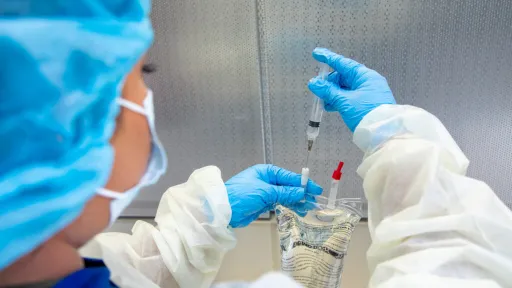
Pharmacy technicians assist pharmacists with many tasks, such as dispensing, inventory management, prescription processing, and medication safety. A strong understanding of medications, including their uses, side effects, and potential interactions, is necessary. It's important that technicians know drug names, classifications, and storage requirements. Staying informed about new medications and industry updates enhances their ability to assist pharmacists and ensure patient safety.
8. Problem-Solving Skills
Problem-solving abilities are essential pharmacy technician career skills, as they allow for the effective management of various challenges to help keep the pharmacy running smoothly. Pharmacies may encounter unexpected shortages or out-of-stock medications, and a technician can contact other pharmacies or recommend appropriate substitutions.
Pharmacy technicians may encounter a variety of challenges. Strong problem-solving skills can help them with tricky situations, such as finding solutions to an insurance coverage problem or recognizing potential drug interactions or allergies when a patient collects their medication.
9. Ethical Standards and Legal Knowledge
Understanding pharmacy laws, safety protocols, and ethical considerations ensures compliance and protects patient confidentiality. Maintaining ethical standards and having some legal knowledge is crucial for pharmacy technicians. Technicians are bound by confidentiality laws, such as the Health Insurance Portability and Accountability Act of 1996, and must comply with pharmacy laws, including those related to controlled substances.
As pharmacy technicians are responsible for dispensing medications, it's imperative that they report any errors or discrepancies immediately. Maintaining professional integrity and ethical behavior is essential to avoiding conflicts of interest. Another aspect of ethical behavior entails a commitment to ongoing education to remain updated on the latest medication practices and legal regulations.
10. Adaptability and Continuous Learning
Health care and pharmaceutical industries are constantly evolving, requiring pharmacy technicians to stay informed about new medications, technology, and regulatory changes. Being adaptable and committed to continuous learning helps technicians stay relevant in their field, improve their skills, and provide the best possible care.
Continuous learning assists pharmacy technicians in adjusting to changes, such as new systems, novel medications, or updated safety protocols. Ongoing education ensures that pharmacy technicians are always ready to offer the highest standard of care, improve patient safety, and maintain efficiency.
Training for a Successful Career as a Pharmacy Technician
Pharmacy technicians are essential in the health care system to ensure that patients receive the correct medications safely and efficiently. As demand for these professionals continues to grow, mastering these top 10 skills can boost potential career opportunities and job performance.
Whether you're considering a career in pharmacy technology or looking to improve your skills, focusing on these key areas can help you excel in this rewarding field. Concorde Career College offers its training program, which you can complete in seven months, or the Associate of Applied Science degree, which can be completed in as few as 8 months. Take the first step toward training to become a pharmacy technician by contacting an admissions representative today.
Frequently Asked Questions
Here are some frequently asked questions about pharmacy technicians:
What are the most common medication errors made by pharmacy technicians?
The most common errors include entering the wrong prescriptions into the system, filing or labeling the medication boxes incorrectly, or mixing up drug names or abbreviations.
What specific mathematical formulas are commonly used by pharmacy technicians?
A pharmacy tech needs to have a good knowledge of basic math, such as basic arithmetic, metric conversions, ratios, proportions, and algebra, to calculate doses and dispense drugs.
How do pharmacy technicians effectively communicate with patients who have language barriers?
Pharmacy technicians should use simple language and speak slowly and clearly. They should check often to make sure the patient understands them. If necessary, they can try to find another member of staff who speaks the patient's language.
What inventory management systems are commonly used in pharmacies?
The most common inventory management systems include BestRx, McKesson, PioneerRx, PrimeRx, RxScan, and Rx30.
What are the most popular pharmacy software programs used by technicians?
Most pharmacies will use Pharmaceutical ERP software to centralize data and processes from different departments like finance, HR, procurement, manufacturing, sales, supply chain, and customer service.
How do pharmacy technicians handle difficult or upset customers?
When dealing with difficult or upset customers, pharmacy technicians should focus on listening and having empathy. It's important to stay calm and give clear explanations. If necessary, they can involve the pharmacist or manager.
What are the most commonly dispensed medications in retail pharmacies?
Some of the most commonly dispensed medications include statins, antibiotics, pain medications, and thyroid hormones.
What are the key federal regulations that pharmacy technicians must follow?
Pharmacy technicians in the United States must follow federal regulations such as the Controlled Substances Act (CSA), the Food, Drug, and Cosmetic Act (FDCA), and the Health Insurance Portability and Accountability Act (HIPAA).
How often do pharmacy technicians need to update their certifications or knowledge?
In the United States, pharmacy technicians typically need to update their certifications every two years by completing continuing education (CE) courses to maintain CPhT, CPhT-Adv, and CPTEd status. CSPT recertification is required every year.
What are the typical daily responsibilities of a pharmacy technician?
Pharmacy technicians perform a variety of tasks, including customer service, prescription processing, and inventory management.
What are the emerging trends in pharmacy technology that technicians should be aware of?
Automation and robotics are being used for tasks like filling prescriptions, packaging medication, and managing inventory. This trend is becoming more common in high-volume retail and hospital pharmacies.
U.S. Bureau of Labor Statistics. (2019, April 12). Pharmacy Technicians : Occupational Outlook Handbook: : U.S. Bureau of Labor Statistics. Bls.gov. https://www.bls.gov/ooh/healthcare/pharmacy-technicians.htm
Tariq, R., Scherbak, Y., Vashisht, R., & Sinha, A. (2024). Medication dispensing errors and prevention. National Library of Medicine; StatPearls Publishing. https://www.ncbi.nlm.nih.gov/books/NBK519065/
Krevesky, J. S., Raymond, C. B., & Woloschuk, D. M. M. (2012). Continuing Professional Development for Pharmacy Technicians: Start of an Evolution? Canadian Pharmacists Journal / Revue Des Pharmaciens Du Canada, 145(3), 120–122. https://doi.org/10.3821/145.3.cpj120
Take The Next Step Towards a Brighter Future
Interested in learning more about our Pharmacy Technician program?
We have a Concorde representative ready to talk about what matters most to you. Get answers about start dates, curriculum, financial aid, scholarships and more!

